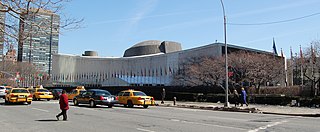UNGA
Posted by swapnil on 11:29 AM
The United Nations General Assembly (UNGA / GA) is one of the five principal organs of the United Nations and the only one in which all member nations have equal representation. Its powers are to oversee the budget of the United Nations, appoint the non-permanent members to the Security Council, receive reports from other parts of the United Nations and make recommendations in the form of General Assembly Resolutions.[1] It has also established a wide number of subsidiary organs.
Subsidiary organs
The General Assembly subsidiary organs are divided into five categories: committees (30 total, six main), commissions (seven), boards (six), councils and panels (five), working groups, and "other".
[edit]Committees
[edit]Main committees
The main committees are ordinally numbered, 1-6:
- The First Committee: Disarmament and International Security (DISEC)
- The Second Committee: Economic and Financial (ECOFIN)
- The Third Committee: Social, Cultural, and Humanitarian (SOCHUM)
- The Fourth Committee: Special Political and Decolonization (SPECPOL)
- The Fifth Committee: Administrative and Budgetary
- The Sixth Committee: Legal.
The roles of many of the main committees have changed over time. Until the late 1970s, the First Committee was the Political and Security Committee (POLISEC) and there was also a sufficient number of additional "political" matters that an additional, unnumbered main committee, called the Special Political Committee, also sat. The Fourth Committee formerly handled Trusteeship and Decolonization matters. With the decreasing number of such matters to be addressed as the trust territories attained independence and the decolonization movement progressed, the functions of the Special Political Committee were merged into the Fourth Committee during the 1990s.
Each main committee consists of all the members of the General Assembly. Each elects a chairman, three vice chairmen, and a rapporteur at the outset of each regular General Assembly session.
[edit]Other committees
These are not numbered. According to the General Assembly website, the most important are:
- Credentials Committee – This committee is charged with ensuring that the diplomatic credentials of all UN representatives are in order. The Credentials Committee consists of nine Member States elected early in each regular General Assembly session.
- General Committee – This is supervisory committee entrusted with ensuring that the whole meeting of the Assembly goes smoothly. The General Committee consists of the president and vice presidents of the current General Assembly session and the chairman of each of the six Main Committees.
Other committees of the General Assembly are enumerated in this list.
[edit]Commissions
There are seven commissions:
- Disarmament Commission, established by GA Resolution 502 (VI) and S-10/2
- International Civil Service Commission, established by GA Resolution 3357 (XXIX)
- International Law Commission, established by GA Resolution 174 (II)
- United Nations Commission on International Trade Law (UNCITRAL), established by GA Resolution 2205 (XXI)
- United Nations Conciliation Commission for Palestine, established by GA Resolution 194 (III)
- United Nations Peacebuilding Commission, established by GA Resolution 60/180 and UN Security Council Resolutions 1645 (2005) and 1646 (2005)]
Despite its name, the former United Nations Commission on Human Rights (UNCHR) was actually a subsidiary body of ECOSOC.
[edit]Boards
There are six boards.
Councils and panels The most important (as well as the newest) council is the United Nations Human Rights Council, which replaced the aforementioned UNCHR in March 2006.
There are a total of four councils and one panel.




0 comments:
Post a Comment